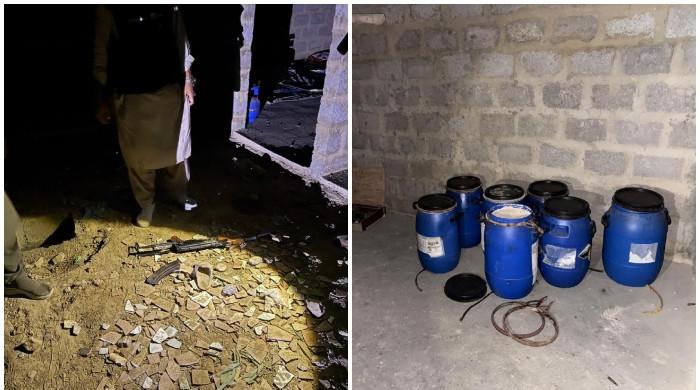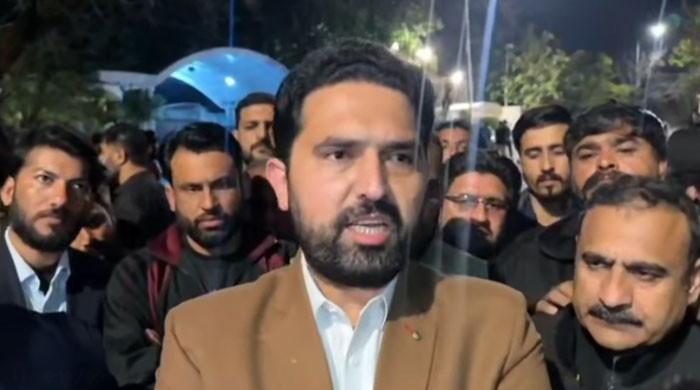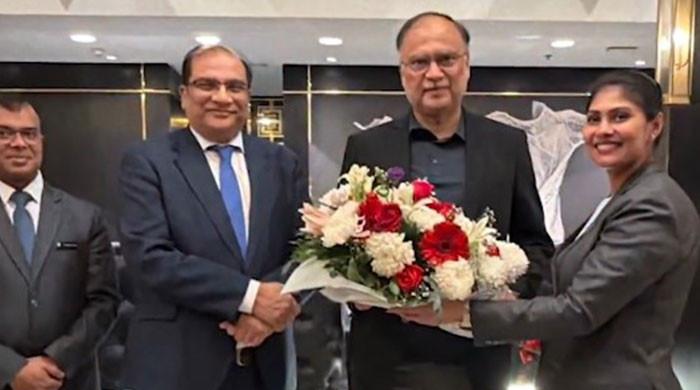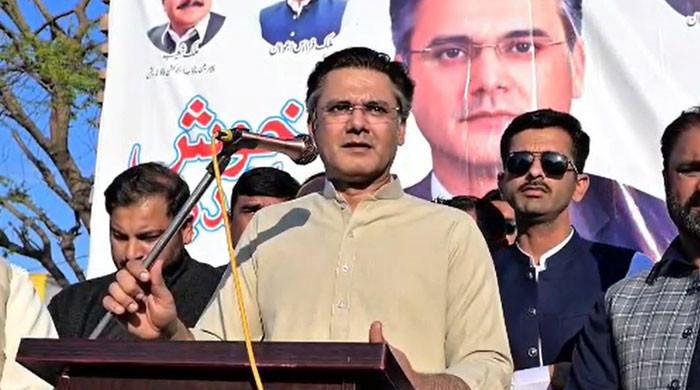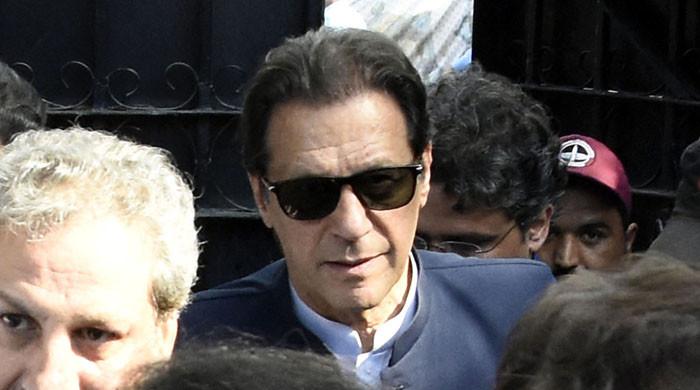Under Constitution, PTI govt may be able to hold Senate polls in February
Article 224(3) of the Constitution states Senate polls can be held a month before the outgoing senator's term expires
December 17, 2020
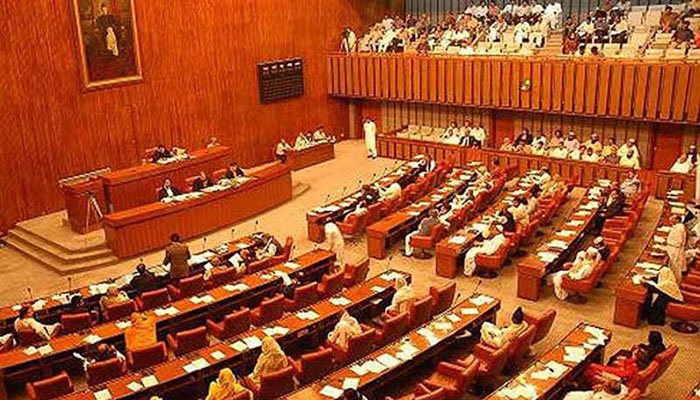
Constitution states Senate polls can be held a month before outgoing senators' term expires
PTI may be able to hold Senate elections in February 2020
-
ECP may have to issue schedule in second week January 2020
The PTI government’s bid to prepone Senate polls may hold under the existing legal system and Constitution.
Article 224(3) of the Constitution states that an election to fill the seats in the Senate which are to become vacant on the expiration of the term of the members of the Senate shall be held not earlier than thirty days immediately preceding the day on which the vacancies are due to occur.
“Keeping in view that the senator’s tenure expires on March 11 2020, their replacements can be elected any time after February 11 2020,” explained Barrister Wasim Sajjad.
This means the government may be able to hold the Senate polls in February as it wishes to upset the Pakistan Democratic Movement (PDM) plan to delay elections by resigning from the federal and provincial assemblies.
The elections cannot be held more than a month before the outgoing senators’ term ends nor can they be delayed beyond the expiry of such term.
But the schedule for the polls is issued by the Election Commission of Pakistan (ECP) every three years. Under the election law, the commission is the sole authority to organize the polls. The process is spread over different phases and takes about a month to conclude.
During the last election in 2018, the ECP issued schedule on February 2 and elections were held on March 3 across four provincial assemblies. A separate schedule was issued for election of two senators by the National Assembly which spanned over 28 days.
If the commission decides to allow government’s bid to prepone elections, it may issue schedule in the second week of January 2020 and organise polling after February 11. It may also shorten the schedule as allowed by the Elections Act 2017.
Read more: Senate elections to be held on March 3: ECP
The schedule procedure
According to the report in The News, the ECP would issue a notification to fill the impending vacant seats and fix dates for filing nomination papers, publication of candidate names, scrutiny of candidacy papers, filing of appeals, disposal of appeals, publication of revised list and withdrawal of candidature.
What are the returning officer's powers?
As per Elections Act, the Returning Officer (RO) may, for the purpose of scrutiny, require any agency, authority or organisation, including a financial institution, to produce any document or record or to furnish any such information as may be necessary to determine facts relating to an objection to the candidature of a contestant.
However, he will not ask any question which has no nexus with the information supplied in the paper; or has not arisen from the objections raised by any person or from information received during the scrutiny.
The RO will question a candidate’s declaration that he is qualified to contest and has met the requirements of the poll law only if tangible material to the contrary is available on record.
He may, either on his own motion or upon any objection, conduct such summary inquiry as he may think fit and reject a nomination paper if he is satisfied that the candidate is not qualified, the proposer or the seconder is not eligible to subscribe to the nomination paper; the law has not been complied with or the declaration is false or incorrect in any material particular and the signature of the proposer or seconder is not genuine.
The RO will not reject a nomination paper on the ground of any defect which is not of a substantial nature and may allow any such defect to be remedied forthwith and will not inquire into the correctness or validity of any entry in the electoral roll. Where a candidate deposits any amount of loan, tax or government dues and utility expenses payable by him of which he is unaware at the time of filing of his nomination paper, his candidature will not be rejected on the ground of such default. However, if the RO is satisfied that the aspirant has willfully concealed such dues, he will reject his nomination paper.
Read more: Senate elections: Rules and etiquettes
Appeals
An appeal against scrutiny will be summarily decided within the time fixed by the ECP and any order so passed will be final. If, on the basis of information or material coming to its knowledge by any source, a tribunal is of the opinion that a candidate whose nomination has been accepted is a defaulter of loans, taxes, government dues and utility expenses or has had any loan written off or has willfully concealed such fact or suffers from any other disqualification from being elected as a member of the Senate, it may, on its own motion, call upon him to show cause why his papers may not be rejected.




